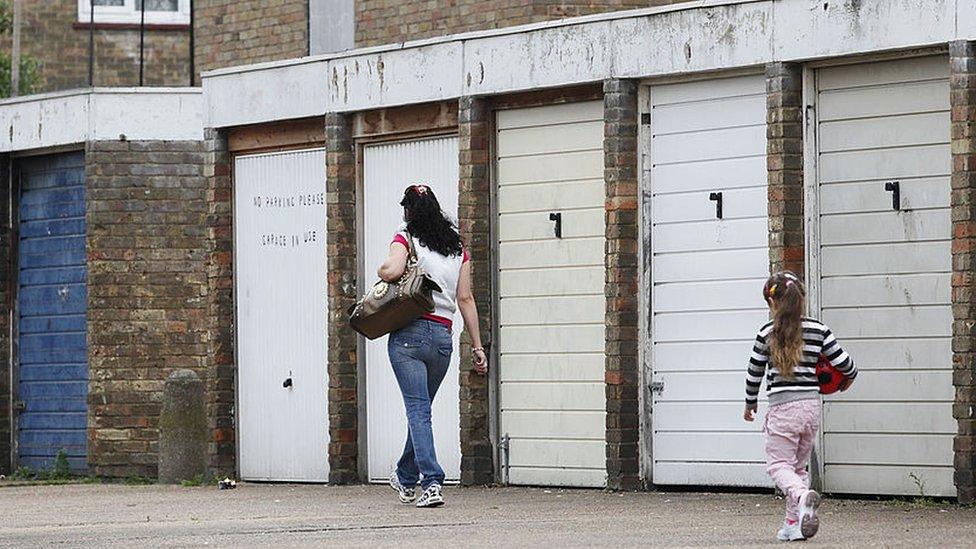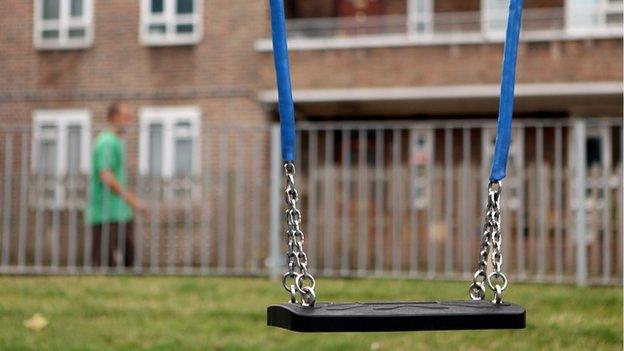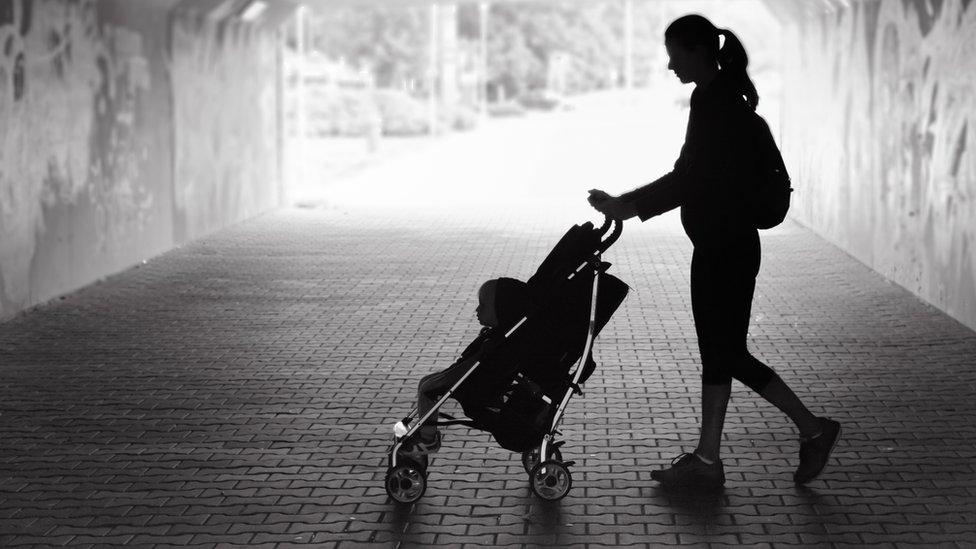The benefits of listening
- Published

A payment of £10 a week will be made for every child in families who already receive benefits.
Intriguing statement at Holyrood, with political, pragmatic and philosophical implications. Anent the subject of benefits.
Ministers had been under considerable pressure to do more to tackle child poverty, particularly since announcing a specific strategy on this scourge in 2017.
Indeed, that pressure had been aimed directly at the first minister, with Labour's Richard Leonard pursuing her over this topic in successive weeks.
Today, we got the answer. And it appears that ministers have won the backing of anti-poverty campaigners. If not yet the Labour party.
Peter Kelly, the director of the Poverty Alliance in Scotland, had begun the day demonstrating outside Holyrood, demanding urgent action.
By the close, after hearing the statement and meeting ministers inside Holyrood, he pronounced himself broadly satisfied, offering thanks for the announcement.
One understands, of course, why, for political reasons, Labour could not follow suit. Their role, their mandate, is to provide opposition.
Making inroads
And so Elaine Smith said that the measures announced did not go far enough to meet ambitions laid down by Parliament.
Will today's move eradicate child poverty? Plainly not. But will it begin to make inroads? Anti-poverty campaigners, who work in the front line, say yes.
The detail? A payment of £10 a week for every child in families who already receive benefits. For all children up to the age of 16 by 2022. For those aged under six by early 2021 - meeting the demand for swifter action.
And the pragmatic element? Implementation will take careful work. For one thing, there will be no automatic payments, given the need to mesh with existing benefits. Families will have to apply - although ministers promise to encourage full take-up.

For another, the priority attached to this may mean the deferral, by months, of other benefits being transferred to Scotland.
And, still with pragmatism (but also politics), this prioritisation will mean tough choices in the period ahead.
Unless taxes are to be hiked significantly, other budget lines may face constraint. Aileen Campbell, the communities secretary, stressed that action on child poverty would be emphasised.
She said it was "bold and ambitious". A game changer. And, turning gently but firmly upon her critics, she insisted it was practical assistance for Scotland's poorest families.
Removing stigma
Then the philosophical bit. Among several demands, Labour had been urging a £5 increase in child benefit in Scotland.
That is a universal benefit, paid to families regardless of financial circumstances. Advocates say that removes any possible stigma from claimants. Critics say it means cash goes to people who, by arithmetical definition, do not need it, or at least as much as others.
Today's announcement, by contrast, is quite deliberately targeted. The additional payment will go to families who are already in receipt of support from other benefits. It is designed to help the poor.
To govern is to choose.
- Published26 June 2019

